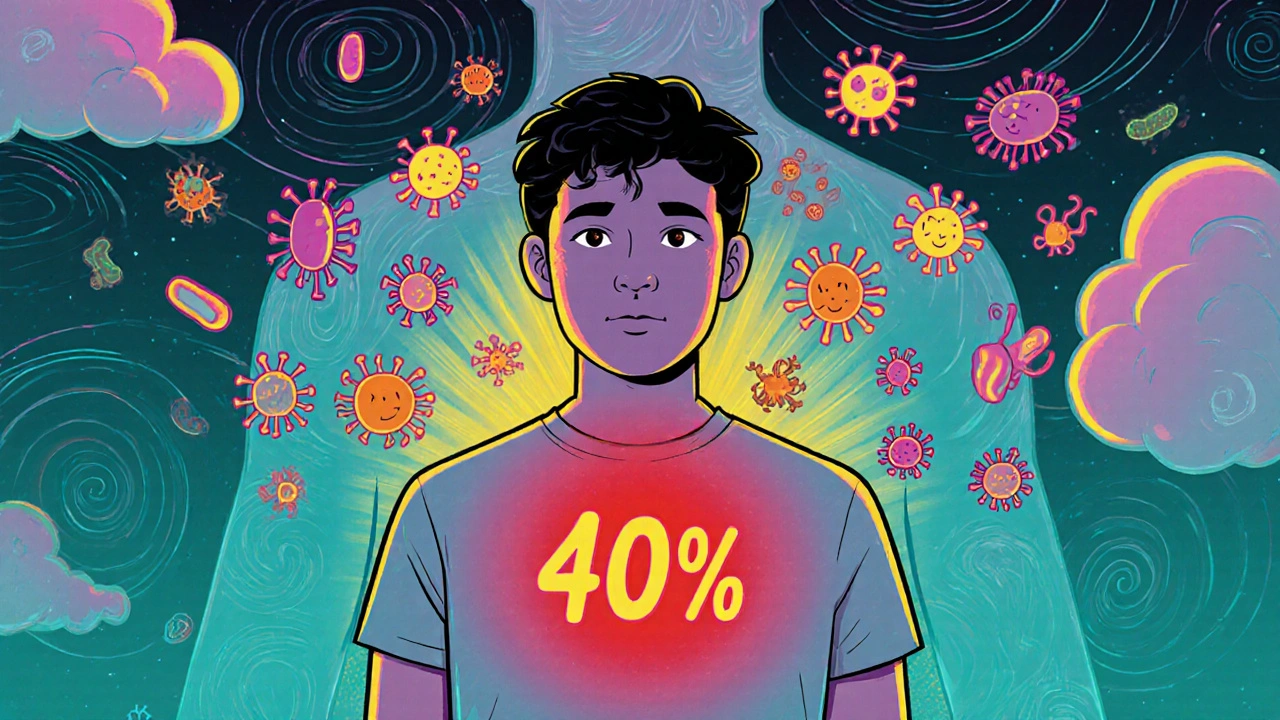Lupus and Infections: How Infections Trigger Flares and What You Can Do
Explore why infections trigger lupus flares, common culprits, prevention tips, and how to manage infections safely for people living with lupus.
When your immune system goes rogue and starts attacking your own tissues, you’re dealing with an autoimmune disease, a condition where the body’s defense system mistakenly targets healthy cells. systemic lupus erythematosus is one of the most common forms, and for many people, it doesn’t just flare up randomly—it often follows a viral infection, a trigger that can wake up a sleeping immune system and turn it against the body.
It’s not just coincidence. Studies show that viruses like Epstein-Barr (the one that causes mono), cytomegalovirus, and even common cold viruses can set off lupus flares in people who are genetically prone. These viruses don’t cause lupus directly, but they can confuse the immune system. After fighting off the virus, the body may keep producing antibodies that accidentally target DNA and proteins in your skin, joints, and kidneys. That’s why someone with lupus might feel fine for months, then get a cold, and a week later be in pain with swollen joints and a rash.
That’s also why managing infections matters so much. People with lupus often take drugs that suppress their immune system to control flares, but that makes them more vulnerable to viruses. It’s a tightrope walk: too much suppression, and you catch every bug that passes by; too little, and your own immune system attacks you. The goal isn’t to avoid all viruses—that’s impossible—but to reduce exposure and respond fast. Wash your hands. Skip crowded places during flu season. Get the flu shot and the pneumonia vaccine (talk to your doctor first—live vaccines aren’t safe for everyone on immunosuppressants).
And if you do get sick? Don’t wait. Early treatment for a viral infection can mean the difference between a mild flare and a hospital visit. Fever, fatigue, or a new rash after a cold? Call your rheumatologist. They might adjust your meds, run a quick blood test, or just tell you to rest—and that’s better than letting a virus spiral into a full-blown lupus crisis.
The posts below dig into how lupus connects with other drugs, treatments, and immune triggers. You’ll find clear comparisons of medications like hydroxychloroquine and azathioprine, which are often used to keep lupus under control. You’ll also see how immune system modulators work, what side effects to watch for, and how to spot when a simple infection is becoming something bigger. This isn’t just theory—it’s practical info from people who’ve lived through it, and the doctors who help them manage it.

Explore why infections trigger lupus flares, common culprits, prevention tips, and how to manage infections safely for people living with lupus.